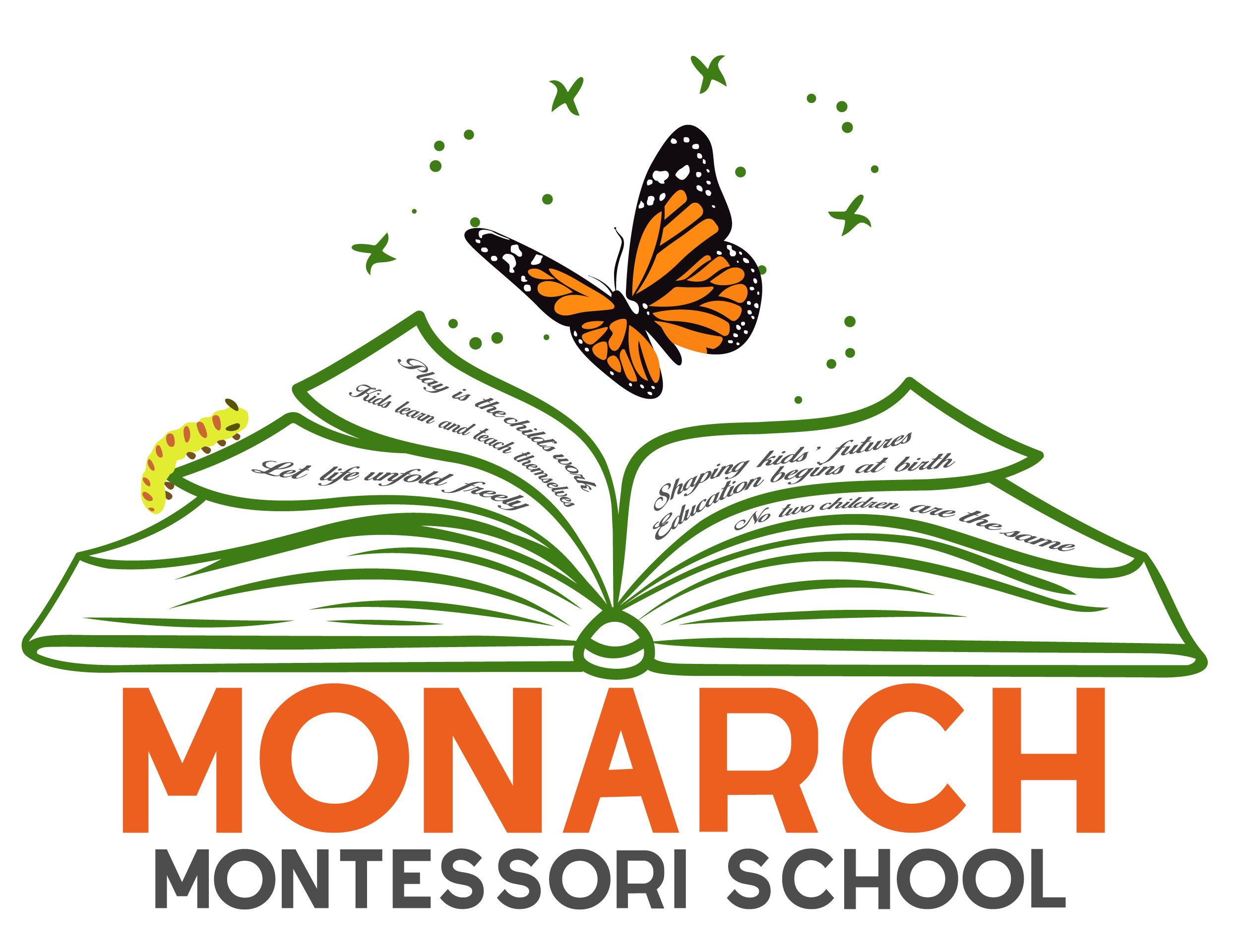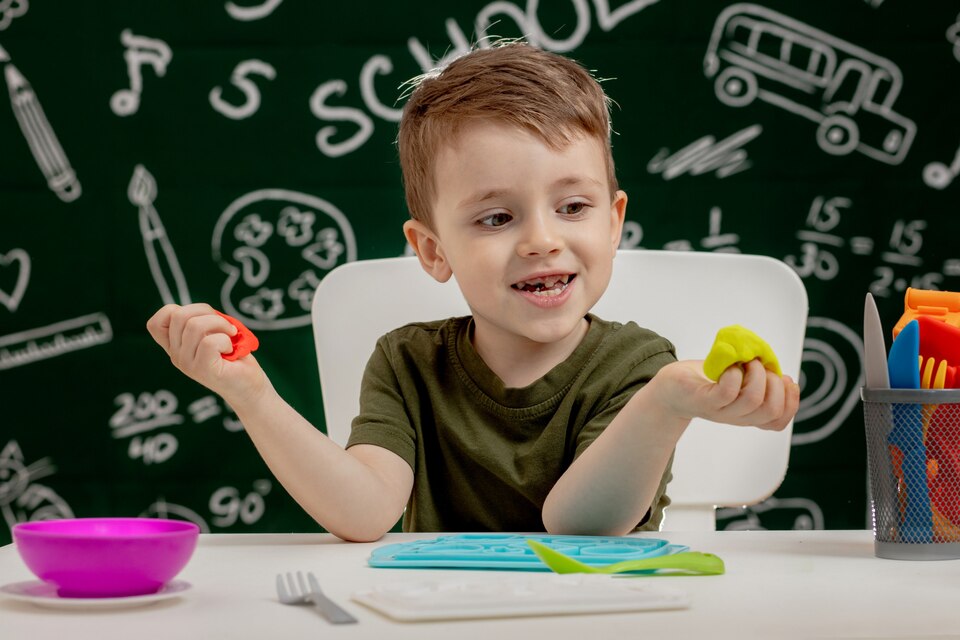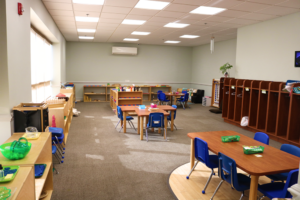Can Montessori Help Kids With ADHD?
Attention-Deficit/Hyperactivity Disorder (ADHD) affects millions of children, often making traditional classroom settings a challenge. Parents and educators alike search for learning environments where these children can thrive. They are looking for schools where the environment respects individuality, encourages focus, and promotes self-confidence. At Monarch Montessori School, we believe the Montessori method offers a unique and supportive approach for children with ADHD because the Montessori method offers a distinct learning environment.
This article explores how the Montessori principles may offer positive support for children experiencing ADHD. We invite you to discover if this child-centered approach could be a beneficial path for your family.
Understanding the Montessori Philosophy
The Montessori approach views children as naturally eager learners. Dr. Maria Montessori developed this method based on observing how children learn best when they direct their activities.
Students with ADHD may struggle with inattention, impulsivity, and hyperactivity. In conventional classrooms, this can translate to difficulty sitting still, following multi-step instructions, or maintaining focus on teacher-directed activities. These challenges can impact academic success and self-esteem
The Montessori classrooms are carefully prepared to foster independence and discovery. The focus is on hands-on experiences and allowing children to explore subjects that genuinely capture their interest. This can be a welcome change for active minds.
How Child-Led Learning Supports ADHD
A key feature of Montessori is child-led learning. Children have the freedom to choose their work from a range of approved activities, fostering a sense of ownership over their education.
For a child with ADHD, this autonomy can be very empowering. When a child selects a task that fascinates them, their ability to focus and engage often improves significantly. This approach helps build concentration naturally.
Here’s how these principles can help students with ADHD:
- Interest-driven: Kids pick what they learn.
- Better focus: Engagement comes from genuine interest.
- Self-paced: No pressure to keep up with others.
Freedom of Movement in the Classroom
Traditional classrooms often require children to sit still for long periods. This can be particularly challenging for children with ADHD who may have a higher need for physical activity.
Montessori classrooms embrace movement. Children are generally free to move around, work at tables or on mats on the floor, and take breaks when needed. This freedom can help manage hyperactivity.
Here’s how these principles can help students with ADHD:
- Active learning: Movement is part of the process.
- Reduced restlessness: Physical needs are accommodated.
- Task transition: Kids can switch activities smoothly.
The Role of Hands-On Materials
Montessori education is renowned for its unique learning materials. These are not just toys; they are scientifically designed tools that teach specific concepts through touch and manipulation.
Using these hands-on materials engages multiple senses. This multi-sensory engagement can be very effective for children with ADHD, helping them to grasp concepts more concretely and maintain attention for longer periods. The tactile nature of the work is often calming.
Here’s how these principles can help students with ADHD:
- Sensory engagement: Learning through doing and touching.
- Concrete understanding: Abstract ideas become tangible.
- Sustained attention: Materials hold interest effectively.
At Monarch Montessori School, we believe in fostering a child’s physical, social, and emotional development. Contact us at 973-928-3605 to learn more about our school. We can help you decide which school is appropriate for your child.
Individualized Learning Pace Benefits
In a Montessori setting, learning is not a race. Each child progresses at their own pace, moving on to new concepts when they are ready, not when a fixed schedule dictates.
This individualized approach removes the pressure of keeping up with peers. For a child with ADHD who might need more time with certain concepts or who might hyperfocus and move quickly through others, this flexibility is invaluable. It allows for mastery without undue stress.
Here’s how these principles can help students with ADHD:
- Personalized progress: Learning matches the child’s speed.
- Reduced anxiety: Less pressure to perform.
- Builds confidence: Success at their own rhythm.
The Prepared Environment and Its Impact
A Montessori classroom is a prepared environment. This means it is orderly, calming, and designed to minimize distractions while maximizing opportunities for purposeful activity.
This structured, yet uncluttered, setting can be very beneficial for a child with ADHD. Fewer visual and auditory distractions can make it easier to concentrate. The predictability of the environment provides a sense of security and calm. Here’s how these principles can help students with ADHD:
- Orderly space: Minimizes external distractions.
- Calm atmosphere: Supports focused work.
- Purposeful design: Everything has a place and reason.
At Monarch Montessori School, we offer programs for infants through elementary school. Our programs are designed to foster child development. Schedule a tour with us today.
Developing Executive Function Skills
Many children with ADHD benefit from support in developing executive function skills. These skills include organization, planning, time management, and task initiation. The Montessori method inherently nurtures these abilities.
Through choosing their work, managing their time during work cycles, and caring for their classroom environment, children practice these vital skills daily. The teacher acts as a guide, offering support as these abilities grow. Yes, Montessori can help children with ADHD develop these competencies.
Here’s how these principles can help students with ADHD:
- Self-direction: Kids plan their activities.
- Time awareness: Long work periods encourage management.
- Responsibility: Caring for materials and space.

Can Montessori Help Kids With ADHD?
The question of whether Montessori can help kids with ADHD is one many families consider. The core principles of Montessori education appear to align well with the needs of many children who experience attention differences and hyperactivity. Yes, it can help.
With its emphasis on child-led learning, freedom of movement, hands-on materials, individualized pacing, and a thoughtfully prepared environment, Montessori offers a supportive framework. This approach may allow children with ADHD not just to cope, but to truly flourish by harnessing their interests and learning in a way that respects their unique development.
To learn more about how Monarch Montessori School supports diverse learners, we invite you to visit our campus at 2 Newark Pompton Turnpike, Little Falls, NJ 07424.



